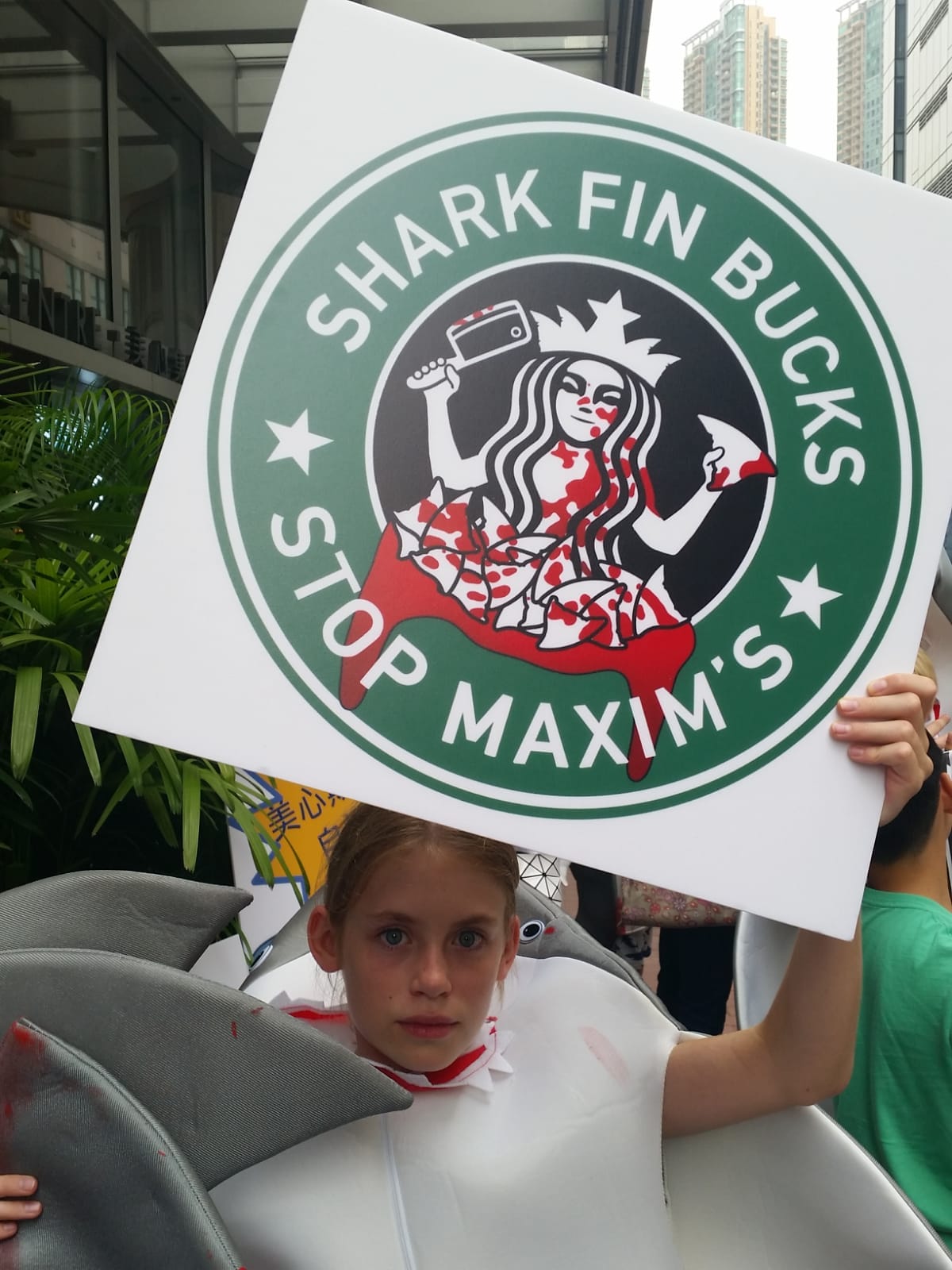For those in the world of Corporate Social Responsibility (CSR) and Environmental and Social Governance reporting (ESG), there is an interesting dynamic at play in Hong Kong, with a large multinational brand being drawn into the domestic “dirty laundry” of its licensee. The question is whether or not that local partner, and flagbearer of that brand, is able to find solutions that will not pull the value of the international brand down with its own domestic reputation.
In short, the licensee of Starbucks in Hong Kong, Macau, Singapore, and Vietnam—Maxim’s, with over 180 stores—is also the largest restaurant chain in Hong Kong, and it continues to serve shark fin on its menus. This is akin to having a menu option for elephant or rhino. There are no proven sustainable shark fin fisheries, and most laws to protect endangered species are woefully late in coming to the rescue of sharks. That’s because it takes so long for science in the ocean to be undertaken, and for the global consensus of peer groups to finally approved “endangered status.”
In the meantime, sharks—and the entire health of the ocean, as sharks are the main balancing factor in the ocean ecosystem—have been put at serious risk. This is all in the name of culture, a so-called “tradition” for serving shark fin soup, which was mainly commercialized in the 1970s as a money-making opportunity, and which has nothing to do with medicinal or sexual performance. Instead, it is simply used to show wealth and status to the host’s peers at the dining table. The illegal wildlife trade is also often related to the transnational crime syndicates that traffic dangerous drugs, weapons, and humans.
Times have changed, and just as slavery, smoking on airplanes, and foot-binding have all been banned due to social norms, it is time for companies to show responsibility to the communities they serve. Of course Starbucks does not sell shark fin at its restaurants, but it is benefiting from the business that Maxim’s, its licensee, brings to the brand as the de facto representative of Starbucks in these Asian countries. It is unconscionable that Starbucks would buy coffee from suppliers or partners who also engage in human trafficking, as its brand would be quickly implicated.

Maxim’s—and by association, Starbucks—is under fire from environmental activists for selling shark fin. (Photo by Alex Hofford/WildAid Hong Kong)
This case of shark fins is exactly the same, however, with the implication coming from its partner, which continues to undertake this cruel, unsustainable business with a murky supply chain more often than not linked to illegal, unreported and unregulated (IUU) fishing. The revenues from shark fin soup sales are also likely to be less than 0.001 percent of Maxim’s’ total revenue. Yet the chain seems unwilling to drop shark fin from the menu for fear of losing face, or maybe a few customers. On the contrary, it can be easily argued that Maxim’s would actually gain customers if it stopped selling shark fin permanently and rode on the good press that this decision would bring.
This is an expensive brand maneuver and risk for any company, particularly with such a hot environmental topic and the visibility that social media provides. The Hong Kong and Chinese governments have both already banned this item from all official functions. In fact, this story is now global in the environmental community, and it shows that multinational brands should exercise caution in whom they work with, or license to, just as they would with supply-chain transparency and ESG requirements for those partners. “The unethical actions of Maxim’s undermine Starbucks’ admirable contribution to the United Nations Sustainable Development Goals (SDG), especially SDG #14, which sets out to ‘conserve and sustainably use the oceans, seas and marine resources for sustainable development,’” says Alex Hofford, Wildlife Campaigner with WildAid in Hong Kong.
This implied liability is now one that sits on Starbucks’ doorstep, and is an issue that is easy to solve—by simply stopping all shark fin sales via its partner Maxim’s. Such a solution would bring great publicity for both companies involved. To the contrary, failure to act on this topic in an engaged way can bring negative publicity, exposing a brand liability that no one seemed to expect just two weeks ago. This is where investors such as Larry Fink, the CEO of BlackRock, or Goldman Sachs, with their new environmental investment policies, will begin to make a difference in who they chose to invest in. It is not worth their time, or investors’ money, to be caught out on a limb on such a large-scale, obvious “hot topic” that has the potential to ignite outrage—regardless of what “tradition” says.

























